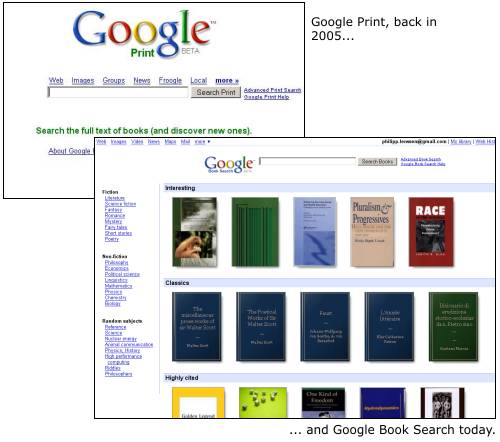In an ever changing approach by bloggers to keep up with the Google SERP algorithms, many of us get carried away with our “SEO Techniques.” It’s not a surprise nor a shame, because without this experimentation, we are bound to hit a plateau in progress.
Unquestionably, even here at Blogussion – we try many new things, in combination with the old to help build on the traffic from search engines. Whether it be validating the site using the W3C Markup or just typing a new category-description,
Search Engine Optimization is a never-ending process that evolves on a regular basis and it is our duty to keep up with it.
However, in trying new things – we shouldn’t forget that some techniques will never die out and must be practiced as regularly as possible. I would just like to outline 45 tips that will help you build quality back-links to your site, with minimal to no costs!
Quality back-links serve two main purposes. Firstly, it helps crawlers find and locate your site. Once this is accomplished, the search engine crawler goes about indexing your site. The next purpose; back-links help crawlers identify how important your blog really is.
The first purpose obviously only applies to new blogs, but the second one will still be valid even 10 years down the track. These back-links also help the Google Crawler to assign your pages with a Google PageRank. Simply to put, the more authoritative websites that are linked to your site, the more important it is perceived to be.
List of 45. Starts Here.
Getting Links for Writing Content
1. Write content that is useful – Writing resourceful content will always attract links, hands down. If you write an article that is overflowing with useful and resourceful information – people
will link to it.
2. Don’t forget trackbacks – This handy feature for WordPress can be great way of returning the compliment for a dedicated link.
3. Remind your readers to link to you – After each posts, just throw in a quick reminder that your article can be socially bookmarked or linked to.
4. Make a Top “X” List – Alex’s post on “100 Lists To Become A Better Blogger” is the most successful post on Blogussion, to-date. This just goes to prove how much people love “lists posts” such as your “Top X [Something]”
5. Debunk a Myth – There’s only one thing better than coming up with an idea, is to prove someone else one wrong. People love opposition and to see a debate bubble up, so don’t be afraid to challenge other people’s opinions.
6. Write with a touch of conspiracy – Just reinforcing tip #5. If you can create that atmosphere of retaliation, it will always raise a few eyebrows.
7. Spread the Love – Dedicate a post or two per week to link to other blogger’s posts that you found useful. More often than not, they will tell their readers “Mr.X linked to my post, how cool!”
8. Trade articles with webmasters – Similar to guest posting, just swap articles with a fellow webmaster.
9. Release a Press Release –
This guide shows you how to write + submit a good Press Release.
Freebies/Giveaways for Link-Baiting
10. Hold a contest with an incentive. Contests are great for link-baiting because when people talk about it, there will always be “Check it out here” tagged along with it.
11. Release a free design. If you can make/buy a custom WP-Theme then release it for free to your guests, you can really kick off on a viral market. Just don’t forget the “Designed by [YOUR LINK]”
12. Release a free plugin. This serves a similar purpose as a design, but not so much with a direct back-link. Instead, if your plugin is useful, the incoming links will just grow exponentially.
13. When running a contest, reward your referees that bring the most referrals. This will encourage them to blog about your contest.
Connecting With Communities
14. Become active and post on relevant forums
15. Become active and comment on relevant blogs.
16. Try not to forget your signature on forums, otherwise the whole thing is an epic fail.
17. When commenting on blogs, try to use post URLs instead of just your Blog URL – This can help regulate your links evenly amongst your blog, and not just solely to your front page.
18. DON’T spam communities with your links to your site, offer a reason for them to visit and contribute with a purpose.
19. Submit your blog to directories – These are still helpful when it comes to getting indexed, especially these directories listed
here.
20. Search up DoFollow Blogs/Forums – These will carry the most significant back-links.
21. Browse
Craigslists and they can provide you with a free or cheap link.
22. Build on your
Technorati Profile
23. Become a Sponsor – Whether it be a theme, whole website or a small project; the sponsors always get mentioned.
24. Run for Charity, and request others to help spread the word.
25. DON’T spam. This tip cannot be reinforced enough. A deleted comment will server no purpose.
Directories, Social Bookmarking + Discussion Groups.
26. Write content for Article directories – Publish content for directories such as
eZineArticles,
GoArticles or
iSnare. In the “About Author’s” area, you can leave a link to your website.
27. Build a
Squidoo Page – It’s easy and if you have the time to develop it, it can be very authoritative. If you don’t there’s heaps of services out there to help you out.
28. Join Discussions over at
Yahoo! Answers – Providing useful answers, along with a link is an easy way to earn a back-link.
29. There’s also
Google Groups – It’s almost the same as Yahoo! Answers, but owned by Google.
30. Submit your voice on
Digg – First build a solid profile, where you have a network of loyal diggers. If you can hit the
Digg front page, you are likely to get linked to by a lot of web-masters.
31. Build on your
Twitter profile then link to your site using your “Bio Area.”
32. Tweet about your posts using Twitter, then request
retweets from your followers.
33. Offer a
“Tweet This Post” link on every post your write, this will make Tweeters easier to tweet about your article.
Direct Link Building
34. Contact your fellow bloggers with a personalized email – asking for an reciprocal link exchange. However, keep this to a minimal and be very selective in who you choose to trade with.
35. Post around on forums asking for reciprocal link exchanges, but yet again be warned on your selection.
36. If you are a part of organizations, clubs or schools – Ask them if they can link to you, because these types of websites are more often than not; authoritative.
37. DON’T ask Darren Rowse, ShoeMoney, Matt Cutts or Yahoo, MSN and Google for back-links. It’s just a waste of time, especially the last three “contacts”
Paid Link Building
38. Buy a Review – Most sites that offer reviews will naturally link to the reviewed product/site.
39. Many webmasters buy links on popular blogs for authority, even though it’s against the Google TOS (Use at your own risk)
40. Rent links from others website –
Text-Link-Ads is most likely your best option.
Using Blogussion for Link Building
41 Leave a comment – All our comments are do-follow, so the link you chose as your URL will get link-love automatically.
42. Top Commentators – As you can see on the sidebar, we use this awesome plugin. Every month, our most contributing members will be rewarded with a link.
43. We use CommentLuv – Every comment you post, will carry a link to your latest blog posts.
44. Link to our posts – We utilize the uses of ‘trackbacks.’ Hence any links to our posts, will automatically be rewarded with a back-link to them! So, Why not share this post with your readers and followers?
45. Buy a Paid Review – We link to our reviewed sites/products.
-----------------------------------------------------
GREAT 2 SITES 2 JOIN-
1.

2.


























